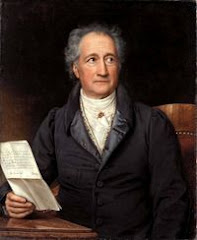I have had to read Parzival nearly to a point of nausea in order to derive a significance. [ I'm not mad about that] My learning on Parzival forced me to look him up in other resources in order to really grasp what was going on with this 13th century story written by Eschenbach. One thing that I can say about this history lesson is that I am seriously shocked by how extremely progressive the minds of the Middle Ages were. In a world like our own, 50 years after Camus, Sartre, de Beauvoir, and the left bankers alike talked about existentialism--- we as students are not unfamiliar with their topics. Many of us might have well thought that existentialism was in fact a child of the left banks and the Parisian's Latin quarter. However, Eschenbach was completely existential 1,000 years before it was formally conceptualized and studied.
Parzival is a pious man, who attempts to live his life for good (similar to the knights, Democrats, and Jamaican Rastafarians); however, his silent relationship with God troubles him. After he leaves King Arthur's Court, he travels for 5 years (in numerology, five is an episode of keen traveler). After 5 years he finds a new horse, goes to a festival and meets a Shaman of sorts (spiritual man), and the man shelters Parzival for 14 days. Within the 14 days, the Sage teaches Parzival about spirituality and the secret of life and of the holy grail: blood holy, Sange Real, Sangral.
While most existentialists are not quite as mystic as Eschenbach-- there is that perpetual question that surfaces and resurfaces. Where are we? What are we doing? Where is God? and Why has he left? These are some extremely heavy questions. It is not that I am biased to history, in regards to thinking that only our technologically obsessed and affluent society can pose and express these questions. But, never has the appropriate light been shed upon history so keenly as to make me think that Parzival figured out the world 1,000 years before I was brought into it.
I think the story of Parzival is extremely cool because its utility fosters philosophy, spirituality, failure, achievement, morality, and reason. What more could be asked from a Middle Aged saga?
Subscribe to:
Post Comments (Atom)







.jpeg)


No comments:
Post a Comment